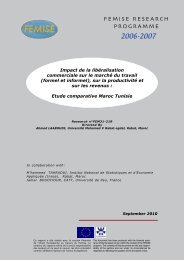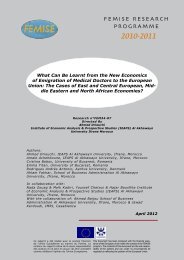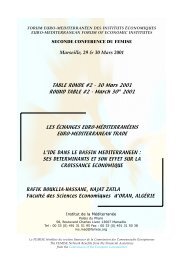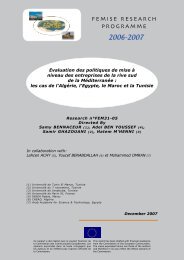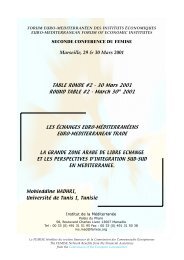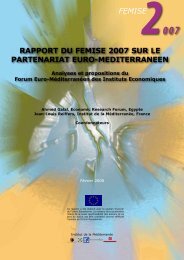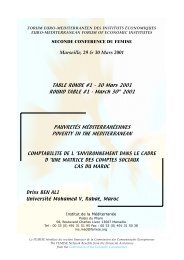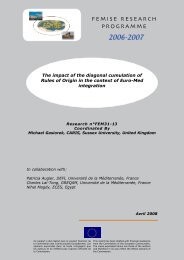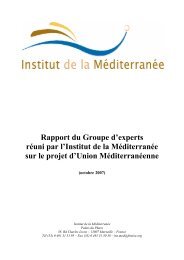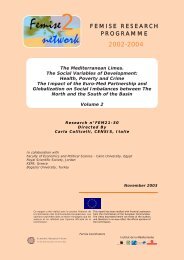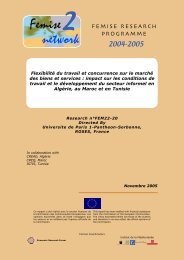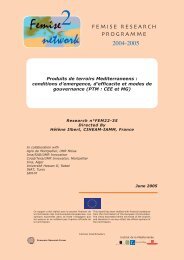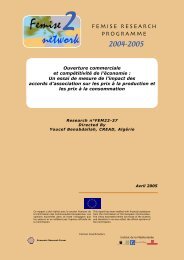PDF, GB, 139 p., 796 Ko - Femise
PDF, GB, 139 p., 796 Ko - Femise
PDF, GB, 139 p., 796 Ko - Femise
Create successful ePaper yourself
Turn your PDF publications into a flip-book with our unique Google optimized e-Paper software.
fall in corruption. This fall is quite large, especially for Syria and Algeria. The improvement<br />
would move these countries almost to the level of corruption observed currently in Turkey<br />
and the improvement in corruption level in Turkey would move it to the level of corruption<br />
observed in the Czech Republic. Figure 3 shows the levels of corruption before and after<br />
proposed deregulation to the level of 8 NMS mean plus the current mean of corruption in the<br />
two regions.<br />
Figure 3 Current versus predicted level of corruption<br />
0.80<br />
0.30<br />
-0.20<br />
-0.70<br />
-1.20<br />
ALGERIA<br />
EGYPT<br />
ISRAEL<br />
JORDAN<br />
LEBANON<br />
MOROCCO<br />
SYRIA<br />
TUNISIA<br />
TURKEY<br />
WEST BANK<br />
121<br />
CZECH REPUBLIC<br />
ESTONIA<br />
HUNGARY<br />
Current level of corruption<br />
Predicted level after deregulation<br />
NMS Mean<br />
MENA Mean<br />
Source: Own calculation based on Control of Corruption Index by Kaufmann, Kraay and Mastruzzi (2006).<br />
"Governance Matters V: Governance Indicators for 1996-2005". World Bank Policy Research September 2006<br />
However, Israel and Tunisia have a lower level of regulation than the 8 New Member States'<br />
average (shown in outlines in figure 3). As a result, a change in the level of regulation to the<br />
NMS8 level would mean an effective increase in regulation. Therefore, this would increase<br />
corruption instead of decreasing it. This result seems plausible too, though it is very important<br />
to remember, that post-communist countries suffer from legacies of the now obsolete system<br />
of central planning. By definition, central planning involved vast and substantial direct<br />
governmental intervention in economic decision-making. Therefore, these countries have a<br />
very high level of regulation even though liberalization is still undergoing. This is not in any<br />
way connected to the bureaucratic rigidities often ridiculed by opponents of the European<br />
LATVIA<br />
LITHUANIA<br />
POLAND<br />
SLOVAK REPUBLIC<br />
SLOVENIA



